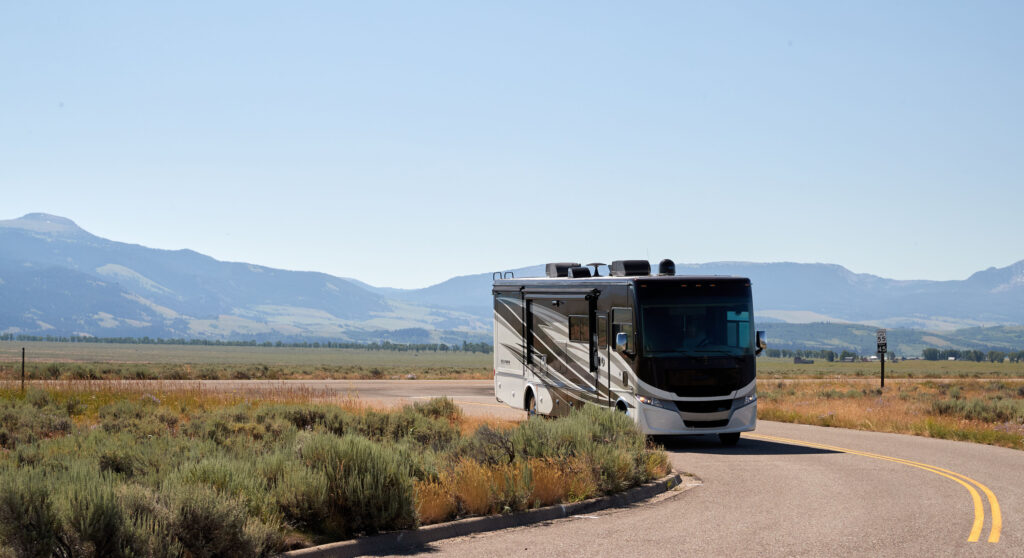Road trips are a lot of fun, but if you’re traveling in an RV for long periods of time, it’s imperative to have the right RV battery. If your RV battery isn’t up to snuff, then your whole trip could be ruined.
In this guide, we’ll cover everything you need to know about RV batteries so that when the time comes for you to purchase one, you can make sure it will last on those long road trips and keep everyone happy.
Let’s get started!
The Importance of Recreational Vehicle Batteries
When you’re not connected to shore power, your RV battery supplies direct current (DC) power to appliances, lights, and other necessary components like the water pump. Batteries are especially important for dry camping or boondocking.
When you go off-grid, it’s critical that your batteries remain fully charged so that all of your electrical systems stay up and running. Without having the best RV batteries in your rig, you run a chance of ruining the whole trip and no one wants that!
The Types of RV Batteries
To get started on this guide, we need to first talk about the types of batteries. There are two types of RV batteries that you’re likely to see on the market when shopping for one. There are deep-cycle batteries and then there are lithium batteries.
Deep-Cycle Batteries
The first type is deep-cycle batteries. Deep cycle batteries are a type of lead-acid battery, and they’re similar to the ones you can find in boats and golf carts! It’s essentially like using your car battery, but it produces more power over time so that you don’t have to charge as often.
Lithium Batteries
Now, the second type of battery is a lithium battery. They’re much more popular than they used to be and for good reason! Lithium batteries are a type of rechargeable battery that is commonly used in lieu of traditional lead-acid batteries, particularly deep-cycle ones supplied by most modern RVs.
Many campers who add solar power to their RV will use lithium batteries, which, while pricey, offer a number of advantages over other types of RV batteries. they’re lighter and smaller than other kinds of RV batteries such as deep cycle or wet cell batteries.
Not that you understand the main types of batteries for RV, let’s discuss something you’ve probably already heard before, RV battery banks.
RV Battery Banks
RV battery banks are exactly what they sound like. You take two or more batteries and tie them together in order to increase the voltage! For example, if you have a 24-volt RV system then you’ll need at least two 12-volt deep cycle batteries that will be wired in series (positive terminal of one battery tied to the negative terminal of another).
So essentially, your whole bank is made up of several smaller batteries all joined together.
Series vs. Parallel
Series batteries are wired to create more voltage. For instance, a 24-volt RV system would use two 12-volt deep cycle batteries wired in series. Parallel systems are for those who need more amp hours of power.
Basically, you wire the 12-volt deep cycle battery to the 12-volt deep-cycle battery, and then you increase your amp hours. So the main difference between the two is the output voltage and the capacity of the battery system.
RV Battery Maintenance and Lifespan
Now, let’s talk about maintaining your RV battery. Like any other piece of equipment in your mobile home (or house), you should take care to do routine checks and maintenance on it so that everything runs smoothly.
First things first: what kind of batteries are we talking about here? Well, as mentioned above there are two main types; lead-acid deep cycle and lithium-ion batteries.
Lithium-Ion is the latest technology for RVs and these last longer than the traditional type because they’re not susceptible to sulfation like a standard deep cell would be over time.
The lifespan of an RV battery is determined largely by how well you take care of it, how frequently you use it, and what sort of battery you have. Lithium-ion batteries can last roughly up to 5,000 charge cycles while deep-cycle batteries can only survive for 400 or 500 cycles. Proper maintenance will help to ensure that your battery has the longest lifespan possible.
How to Choose an RV Battery for You
Now you know the basics and understand the importance of an RV battery, we need to discuss the right RV battery for you.
So, how do I choose the right one? Well, it depends on your needs! If you’re going off-grid with solar panels then lithium is best because they have a higher voltage output than deep cycle ones which means more power in less space.
However, if you don’t need much storage then regular will work just fine since they give out a consistent amount of energy from when they were fully charged until drained completely.
Do I Need a New RV Battery?
If your RV battery is going bad or it’s already damaged, then it’s time to get a new RV battery. There are several signs that will tell you:
- Broken terminals
- Ruptured or cracked plastic casing
- Discoloration and excessive leaking
If you are experiencing any of these with your recreational vehicle batteries, it’s best to get a new one right away.
Get the Best RV Battery
By now you should really have a great idea of the importance of RV batteries, the types, how they work, and the kind that you may need for your setup. They are critical to a fun and successful trip, so don’t skip out and not set yourself up with the right batteries.
If you’re ready to upgrade or replace your current RV batteries or need further help, head over to our contact page and send us a message today!
